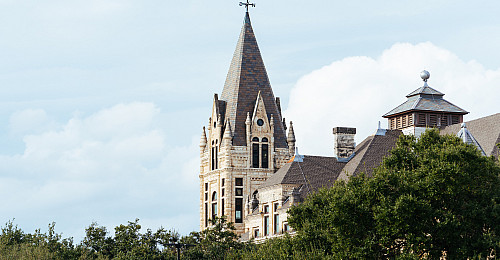Majors & Minors
Biology
We encourage our students to learn to think critically through the study of living organisms and their relationships to the environment.
Majoring or minoring in biology acts as your gateway to a richer understanding of living organisms, from the molecules within cells to the biosphere that encompasses all of Earth’s ecosystems. At Southwestern, you’ll deepen your knowledge of molecular processes, ecological diversity, genetics, the human body, and evolution through our rich and wide-ranging curriculum. You’ll engage in thoughtful assignments and projects while gaining hands-on experience in our state-of-the-art on-campus laboratories. You will have opportunities to conduct research and collaborate with our engaged and enthusiastic faculty on a range of projects, such as studying
- diversity & distribution of snails using genetics and field sampling
- DNA repair & mutation
- development & progression of breast & uterine cancer
- gene expression within bacteria
- complexities of antibiotic resistance
- relationships between natural selection & gene evolution
- ecology of coral reefs
- development of neural circuits in the brain
- anatomy & physiology of the sygnathid reproductive system
Majors may choose to pursue either a bachelor of arts or a bachelor of science. Our students often take courses in SU’s robust Environmental Studies Program or elect one of our interdisciplinary minors, such as Health Studies, Data Analytics, and Neuroscience. In addition, SU offers pre-professional pathways in the areas of pre-medicine, pre-dental, and pre-veterinary medicine that will provide you with personalized advising and other helpful resources that will prepare your for advanced study. No matter which path you choose, you will have numerous career choices from which to choose. Our alumni have gone on to successfully complete graduate and professional programs in the dental, medical, medical technology, nursing, optometry, pharmacy, and veterinary fields. They’ve also enjoyed satisfying careers in industry, government, nonprofit organizations, public health, and education.
We also strive to provide a safe and supportive environment for all students, including, but not limited to, students of color, sexual and gender minorities, low-income students, first-generation students, differently-abled students and those with chronic health conditions.


































